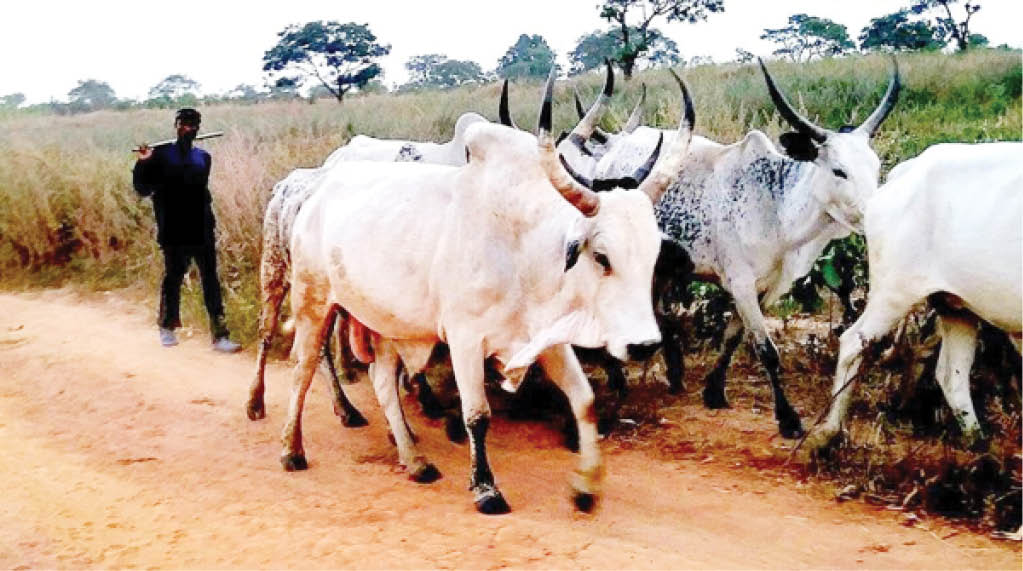Investors, state govts to harvest opportunities in dairy
…as N100bn grants for Livestock plan aproved The National Economic Council (NEC), in its monthly meeting recently approved N100 billion to begin the implementation of the National Livestock Transformation Plan (NLTP), which was adopted by the council in January. Ebony state governor David Umahi who heads the NEC sub-committee on farmers-herders crisis stated that 80 […]

…as N100bn grants for Livestock plan aproved
The National Economic Council (NEC), in its monthly meeting recently approved N100 billion to begin the implementation of the National Livestock Transformation Plan (NLTP), which was adopted by the council in January.
Ebony state governor David Umahi who heads the NEC sub-committee on farmers-herders crisis stated that 80 percent of the N100 billion would come from the Federal Government while participating states would raise the remaining 20 percent, land, personnel and structure for the implementation.
This plan, which is a holistic approach to address the entire animal husbandry, is expected to benefit the country’s livestock population of about 19.5 million cattle, 72.5 million goats, 41.3 million sheep, 7.1 million pigs and 28,000 camels estimated in 2011 National Agricultural Sample Survey.
Already the central bank of Nigeria came up with a policy that will allow for backward and forward integration, which will allow the country reap billions of dollars from its virgin dairy industry and stop exporting jobs by importing dairy products.
The CBN estimated that the country spends $1.5 billion annually on the importation of products like milk, yoghurt, cheese and other milk derivatives- something it says saps the country’s livestock farmers.
The apex bank says it remains ready to provide the needed finance to investors who genuinely want to engage in milk production.
CBN Director of Corporate Communications Isaac Okorafor said in a statement on CBN dairy policy “for over 60 years, Nigerian children and indeed adults have been made to be heavily dependent on milk imports.
The national food security implications of this can easily be imagined, particularly, when it is technically and commercially possible to breed the cows that produce milk in Nigeria.”
More investors, more jobs
The Central Bank Governor, Mr Godwin Emefiele, at the briefing of some state governors on the achievement recorded in the agricultural sector in Abuja, highlighted the ongoing progress in the nation’s dairy industry.
So far many companies are seeing light at the end of the tunnel and they are committing more resources into the scheme according to the nation’s number one bank.
The CBN governor, Godwin Emefiele, stated that FrieslandCampina WAMCO, Neon Agro, Chi Limited and Irish Dairy are willing to invest in the Bobi Grazing Reserve in Mariga Local Government Area of Niger State.
Close to 700 families and 300,000 cows are already domiciled in the 31,000 hectares landmass for the kick-off of the project.
Two of the companies, FrieslandCampina WAMCO and Neon Agroare acquire 10,000 hectare each whereas Chi Limited and Irish Dairy are taking up 4,000 hectares bringing the total to 28,000 hectares, the remaining 3,000 hectares will be used by the state government.
“As at Tuesday 18th September, 2019 FrieslandCampina WAMCO has cleared a total land area of 695 hectares with 190 hectares already planted with pasture.
“The company also completed a hydroponic centre and solar-powered borehole while its Milk Collection Centre is awaiting the installation of equipment while Chi ltd has also signed contracts for the clearing and planting of pasture on its allocated 4,000 hectares.
“Niger State Government on its part has cleared and fenced 63 hectares in two sites and planting of pasture is in progress.
“The Police post, administrative area, veterinary clinic, primary school were refurbished while a Primary Health Care Clinic is under construction,” the CBN governor explained.
In Kaduna State, Mr Emefiele said, Arla Group had a number of investments in Damau, Amana, NAPRI Shika and Kagarko and under the bank’s dairy programme, the coy was investing N12 billion to develop 6,000 hectares of land in Damau Grazing Reserve.
He added that Arla was resuscitating a milk processing plant from 600 farmers in Kagarko near Abuja.
The apex bank boss also said that Promasidor Group got approval to develop the 500 hectares at Ikun Dairy Farm Project in Ekiti State.
“Others are Integrated Dairies Limited, an indigenous dairy company based in Jos, Plateau State that has engaged the Plateau State Government and key stakeholders on the development of Wase Grazing Reserve.
“Nestle plc has indicated interest in developing its dairy project in Abaji, FCT. We are in contact with relevant government departments to fast track land acquisition and issuance of title documents.
“For these investments to bear fruits, the support of the state governments is needed through land, and other infrastructural amenities,” he said.
Opportunity for livestock breeding, research
Experts say with the new policy, the CBN should also build the capacity of research to do breed selection to improve on the genetic of the nation’s current breed of cattle.
“We must look into improving the productivity of the current breeds. Any plan that does not take into account the genetic improvement of the current local breeds will not yield any significant result,” an animal production expert, Jude Jonathan said.
A goldmine for dairy farmers
Dairy experts like Dr. Celestine Ayok believe that dairy is a money-spinner if the government has a deliberate policy as it did with rice. He said there are more than 20 derivatives from milk, adding that farmers can only reap the benefit if sustainable government policies are put in place.
Observers said Nigeria must learn from Kenya and India that have dairy boards for the long-time development of the sector.
They believe the nation has huge potentials, which could put more money in the hands of their farmers if the government implements a long-time development strategy that will expand opportunities for farmers, which include the creation of the dairy board, strengthen livestock research and breed development and attracting more investment into the sector.
